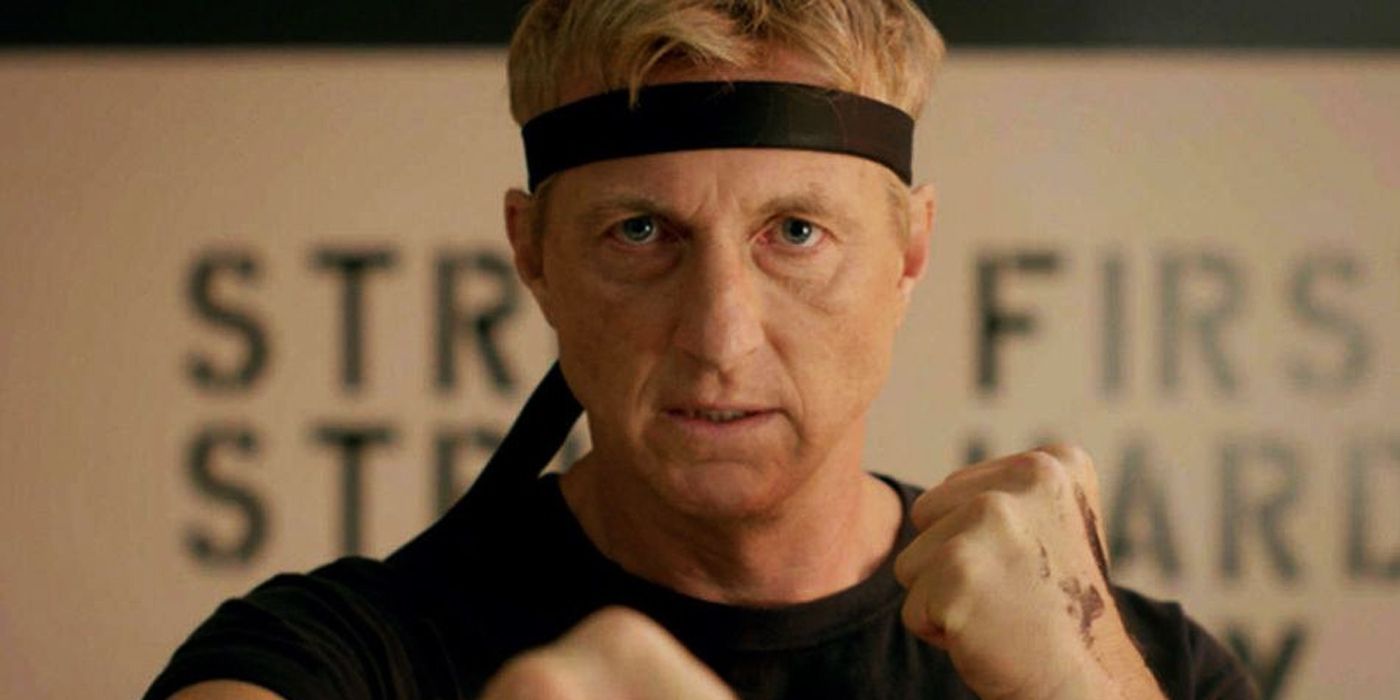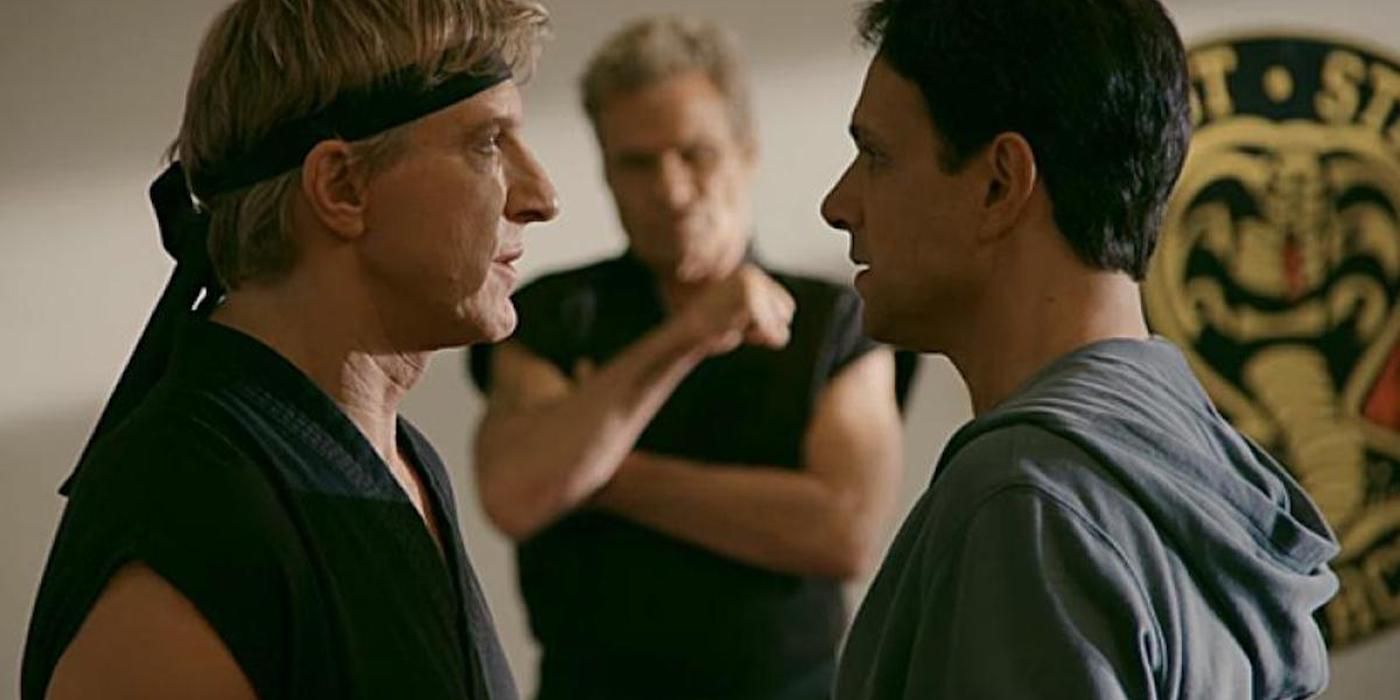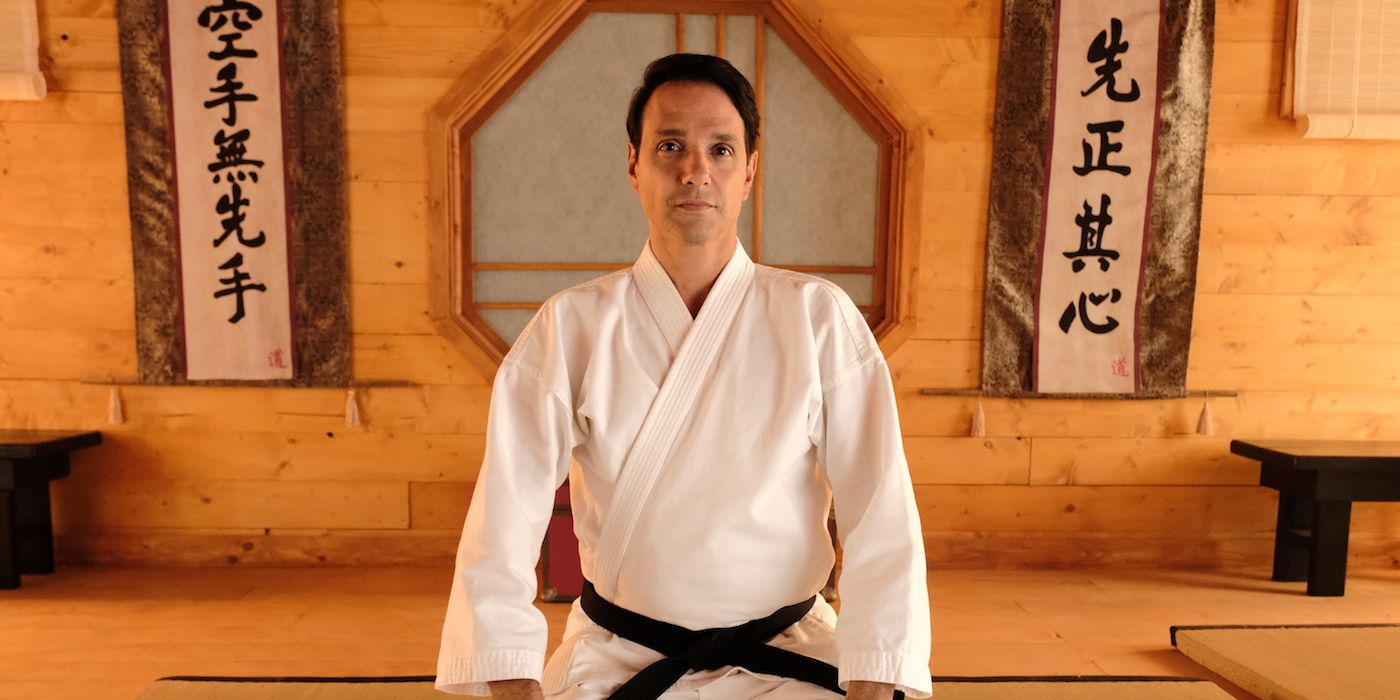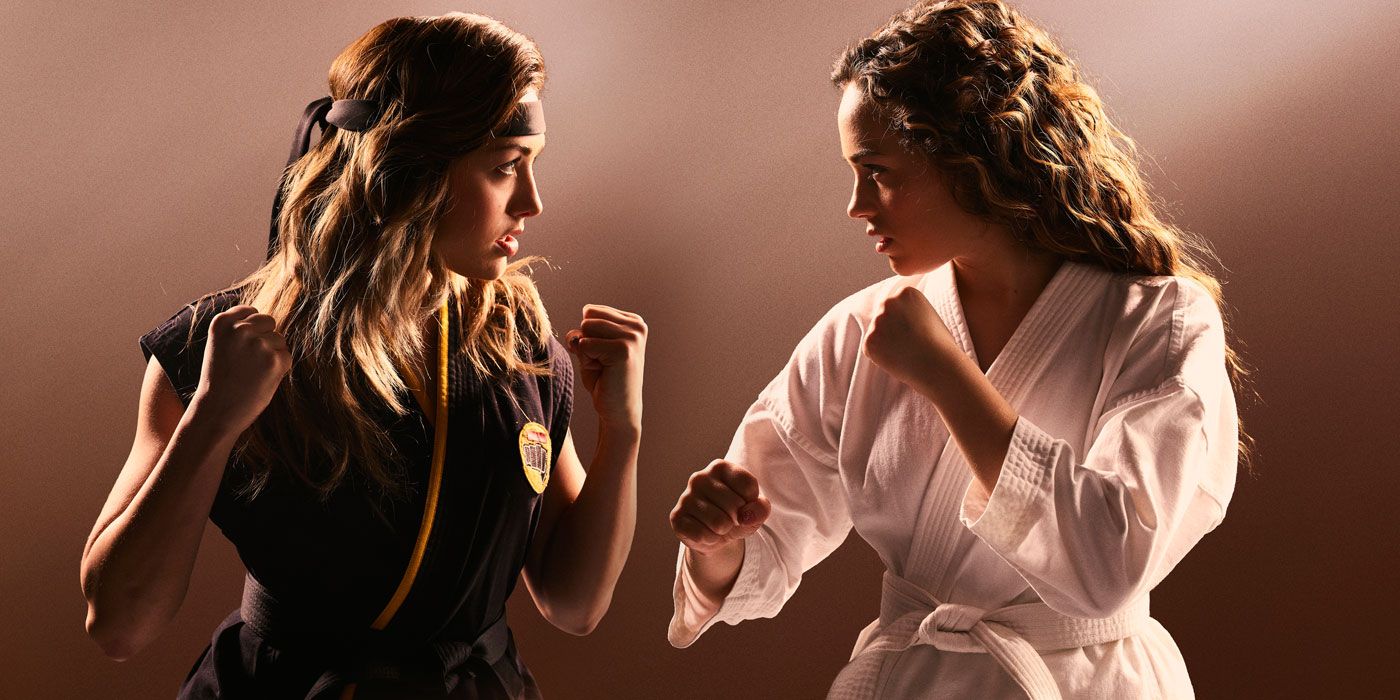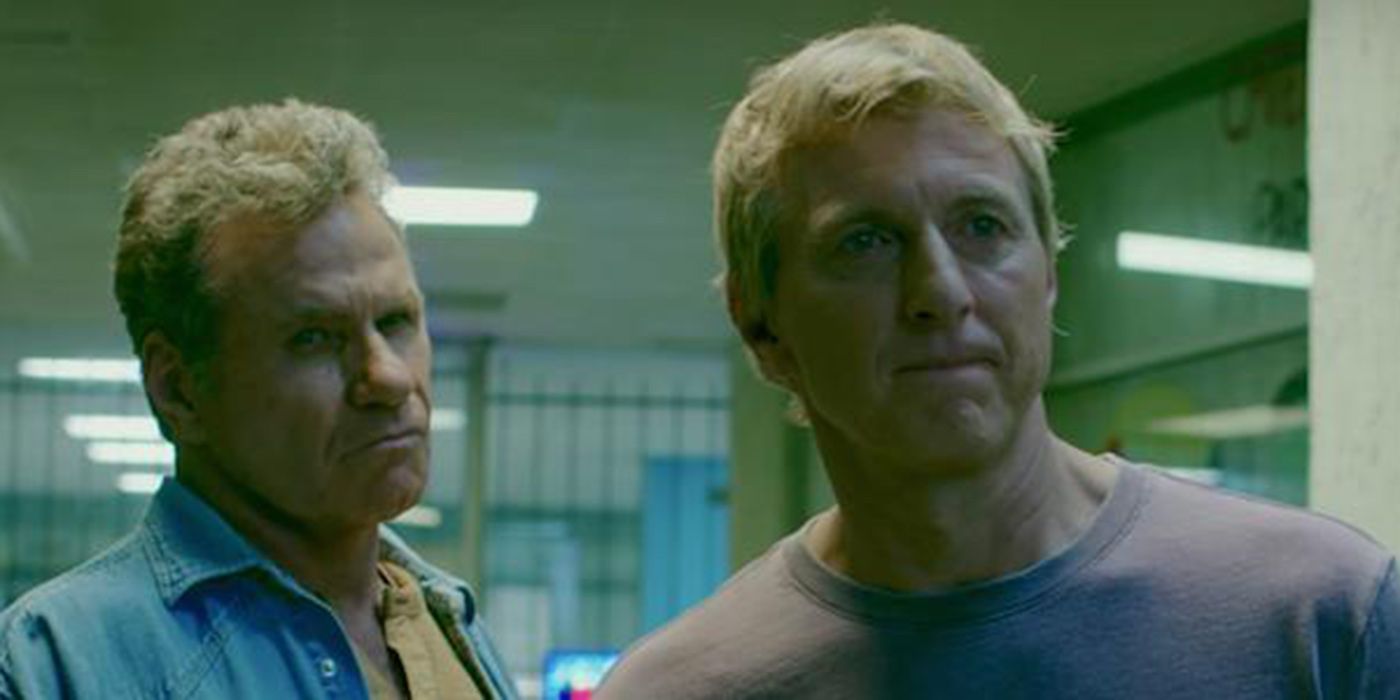After two seasons on YouTube, the widely acclaimed Karate Kid continuation series Cobra Kai is coming to Netflix this month, with both previously released seasons arriving ahead of the eagerly anticipated third season in which the feud between the eponymous martial arts dojo and its biggest rival, Daniel LaRusso, is carried on by a new generation of teenage fighters. The series stars the classic 1984 film's leads, William Zabka and Ralph Macchio, who reprise their fan-favorite roles of Johnny Lawrence and Daniel LaRusso as they each go through midlife crises while mentoring a group of impressionable students.
In an exclusive interview with CBR, series creators Josh Heald, Jon Hurwitz and Hayden Schlossberg explained why Netflix was always the ideal platform to continue the show, hinted at familiar faces that may resurface in the series in the future and shared the way a How I Met Your Mother storyline confirmed their instincts about the Karate Kid characters.
CBR: You are moving to Netflix and there had been reports that it was one of the platforms originally interested in the show and expressed interest again for Season 2. What made now the right time to make Netflix home for Cobra Kai?
Josh Heald: When we conceived Cobra Kai, we all looked at each other and felt Netflix was the right place for it. It was based on one of our collectively favorite movies from our childhood The Karate Kid, this universally adored, wide-reaching, four-quadrant movie. And we set out to make a show that matched that in terms of providing something for any audience, whether you're a young teenager coming in and watching it from the perspective of the kids or you're someone our age who comes in with the seasoned nostalgia of the Johnny/Daniel rivalry.
As fate had it, it was an amazing week pitching the show all over town bringing Ralph and Bill with us, and we just had great meetings everywhere, Netflix being one of them. YouTube stepped up in a "strike first" sort of way and came at us aggressively with a full season order that was impossible to pass up, that collective, creative enthusiasm. But, obviously, their business model has changed and we became this outlier on their platform that they supported and kind of took us as far as they could. But we were just thrilled when that window became available to bring the show back again with our eyes and our minds set firmly on Netflix; it's still the right home for this show.
We feel there's a large audience that's seen this show and gotten into it and there's a much larger audience that's heard of this show, or will hear of it, and get deeply sucked into it. We're just over-the-moon excited for the audience that's going to find this show next week and going to realize, "That's the thing my friends were on me about and telling me to sign up for this other streaming platform." Thankfully, everyone has Netflix so we're just thrilled the audience is going to become an even bigger community.
Was it hard to get Ralph Macchio, William Zabka and Martin Kove to come back to these roles? Were they done with them or were they always game for it?
Hayden Schlossberg: When we originally came up with the idea, we felt that this would be something that they would all like but there may be some skepticism to overcome, which is why we felt it was important to have in-person meetings with everybody, not just a game of telephone with the agent. So we sat down with Billy, we sat down with Ralph, we sat down with Marty, and we talked to them and wanted to, on the one hand, show that we cared about this franchise, that this wasn't a way to exploit it for some joke or comedy purpose. It was really our fandom and love of these characters and wanting to see them continue that fueled the idea.
And we also felt that we had a relevant story to tell for today, for an audience of people that grew up with The Karate Kid that are now in their 40s and 50s and going through their own different midlife crises, but also for teenagers today dealing with a different type of bullying. We felt confident that if we could just sit them down and talk to them about our ideas that they would get excited, and that's what ended up happening.
You ended Season 2 on a hell of a cliffhanger with a certain Facebook friend request. And one of the bigger elements of the Cobra Kai mythos still missing so far is The Karate Kid III's Terry Silver. I know this is a loaded question but can we expect more familiar faces to appear in Season 3?
Jon Hurwitz: As the guys have already said, we love The Karate Kid trilogy and anyone who has seen Seasons 1 and 2 has seen us make references to all three of the original Karate Kid films. And we also say that it's our belief that anything that has happened in a movie Mr. Miyagi was in, which includes The Next Karate Kid, is part of the Miyagi-verse and our series takes place in the Miyagi-verse. Any character who has lived within this Miyagi-verse has potential to show up at some point on Cobra Kai, and I can say that the three of us, as writers, have literally discussed pretty much every person who has appeared in those films, from these large characters you're talking about, like the Terry Silvers of the world, to the most minor characters who had one or two lines.
We view that as all characters who live in our universe and, at any moment in time, have the potential to show up as long as they're relevant to the present-day story that we're telling and don't feel like they're thrown in there for cameo purposes or simply for nostalgia's sake. There needs to be a real, dramatic reason [in] present-day why any of these characters would be relevant to our story. I can say that, going forward, we should expect more characters from The Karate Kid films to return, but I can't say who or when or pretty much anything beyond that.
Had production on Season 3 been affected at all by the pandemic?
Heald: No, thankfully with Season 3, we wrapped production before the end of 2019 and we wrapped post-production... I think there was a little bit of overlap. We were still doing some finishing touches for the effects and some quality checks on Season 3 while the quarantine aspect of the pandemic was just beginning. But we finished our final mix -- the last big piece of post-production -- that was done in-person with raising champagne and eating cupcakes and all the things you do to feel like you're at your absolute unhealthiest coming out of the completion of a season. [Laughs] So there were no major delays in terms of COVID.
Obviously, when Season 3 would've come out on our previous platform was impacted by the fact that we have moved to Netflix and this large audience is now getting the opportunity to experience [Seasons] 1 and 2 before rushing into getting Season 3 right out.
You really upped your game with the fights, especially that long, tracking shot in the Season 2 finale. Are there plans to top that in Season 3 or are you not going for the long, elaborate tracking shots this time around?
Schlossberg: [Laughs] I think we try to do two things at the same time when it comes to thinking of a new season. On the one hand, we do want to top ourselves and think about how we can be bigger and more exciting and take it to the next level, and that also tracks with what's happening with our students learning more karate and getting better. But I think we also always want to stay true to why we love this story in the first place, which is the characters. So sometimes, we don't want to go too far where it becomes The Matrix and feels like a different thing, but it is the balance between really focusing on the story while thinking about those ways to make it bigger.
That's one of the things we loved about The Karate Kid II -- now it's a fight to the death! And so we think, "Okay, how do we take this to a place that gets bigger but there's no point of no return?" I can say that Season 3 is bigger and more explosive but it's not something that feels different, necessarily.
A lot of the characters are at a crossroads coming out of Season 2. Without giving the game away, what are some real big characters audiences should keep an eye on as we head into Season 3?
Hurwitz: At this point we can't talk a lot about Season 3 but every storyline that you were invested in at the end of Season 2 -- from Johnny and Daniel, to what's going in the Cobra Kai dojo in the wake of Kreese's takeover, to what's going to happen with Miguel and where's Robby and what's going to happen to Robby and what Sam has faced and the repercussions for Tori and Hawk and Demetri -- all these storylines that were so rich in Season 2 have been left in a place where there's questions to be answered for every single one of them that we carry forward in Season 3. And carry it forward in what we believe is thoughtful and realistic ways that leads into drama but also opportunities for comedy and lots of action and rekindled rivalries.
A lot more of what you like, but all of those characters really shine going into Season 3. And it's exciting that next week a whole new audience is going to be jumping on the train for Seasons 1 and 2 that, by the time Season 3 comes out, I can say definitively that Season 3 is going to have a lot of fireworks for the fans when they eventually get to Season 3, and it's going to be a great communal experience with all the new fans from Netflix coming on board.
I'm sure you guys get this question all the time but how much momentum did this project gain because of How I Met Your Mother?
Heald: [Laughs] We certainly appreciate the parallel fandoms that this show has, whether it's the How I Met Your Mother storyline -- which was amazing -- we get asked all the time about that YouTube video if Daniel was the real bully. All that stuff just kind of buoyed us a little bit when we were conceiving the show and comparing the storylines to pitch the show because it made us feel confident that we weren't the only ones, and we didn't think we were, but it was nice to see other creators have Karate Kid on the mind.
And it's that kind of classic underdog story where what if you could kind of step into that universe again, how would you rearrange the chess pieces to tell a different story, to tell a richer story instead of just a rehash? And Karate Kid and Cobra Kai never really left the zeitgeist, the franchise has lived on all these years. It's a movie you don't turn off when you see it in the middle like, "Oh, this is the good part!" And then you realize the whole thing is the good part. There was nothing that specifically said to us that there was this Karate Kid thing happening so let's go do this, but it's always nice that we knew there was this giant, untapped audience out there who would want to live with Johnny and Daniel in their living rooms as long as we could keep it going.
To piggyback off that, this is a timeless franchise but it's also over 30 years old. What did you want to retain and how did you want to put your own voices and imaginations into this universe?
Schlossberg: That's a deep question... I think about this a lot: We're a generation of kids in the '80s that was really the first generation that had movies on VHS at our disposal or on HBO where you could watch them over and over and over again. These movies -- and it's not just Karate Kid, it's Back to the Future, it's Star Wars and all those big '80s movies that were super popular -- are really an important part of our childhood memories because we watched them over and over. There wasn't a million channels, so you would watch things over and over again. It's not just the three of us, I think a lot of people have very specific memories of these movies; they know them line by line.
You don't remember what people were saying at your birthday party as a kid but you'll remember "wax on, wax off." And now, as adults, being able to tell a story where the characters have those same memories that we have, it creates this visceral experience that we feel when we're writing it and we know the audience feels when they're watching it. The key is we're still storytellers, we were making films before Cobra Kai, so we're thinking about: what are things that are going on in our lives right now? What are things people our age, when it comes to kids, when it comes to their parents? Suddenly you're the one who is the mentor, who is supposed to be the Mr. Miyagi to your students.
We love to be able to play with those themes and be able to revisit those movies and those feelings. But, given that we're a serialized show and it's almost five hours as opposed to one and a half, we're able to jump perspectives, and in doing so, you really can get a greater sense of the wider truth that a 90-minute or two-hour movie can't do. And, what's fun about Cobra Kai, is it makes you look at the past in a different light, and I think that's what we do as adults. When you're a kid, everything is black-and-white in life. Your parents are the ones in charge and there's all these things, but then you grow up and you realize things about your parents, you realize things about your childhood that you didn't quite know. Like that bully in school? The reason he was a jerk was because his parents were mean to him.
All those kind of deeper feelings are the stuff we like to explore, so we're using all these memories from our childhood to tell a story today about how we look at the past and how we deal with the present, and it's so much fun and rewarding.
Starring William Zabka, Ralph Macchio, Courtney Henggeler, Xolo Maridueña, Mary Mouser, Tanner Buchanan and Martin Kove, the first two seasons of Cobra Kai will be released on Netflix Friday, Aug. 28.

